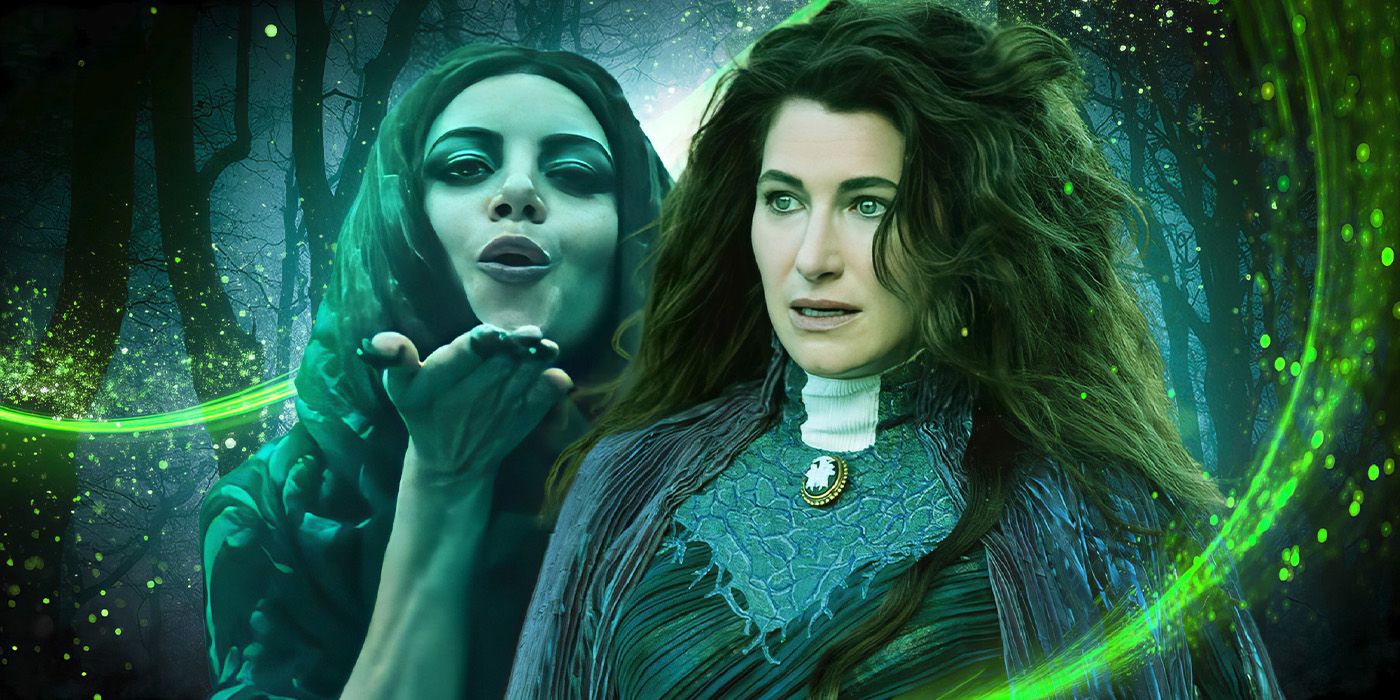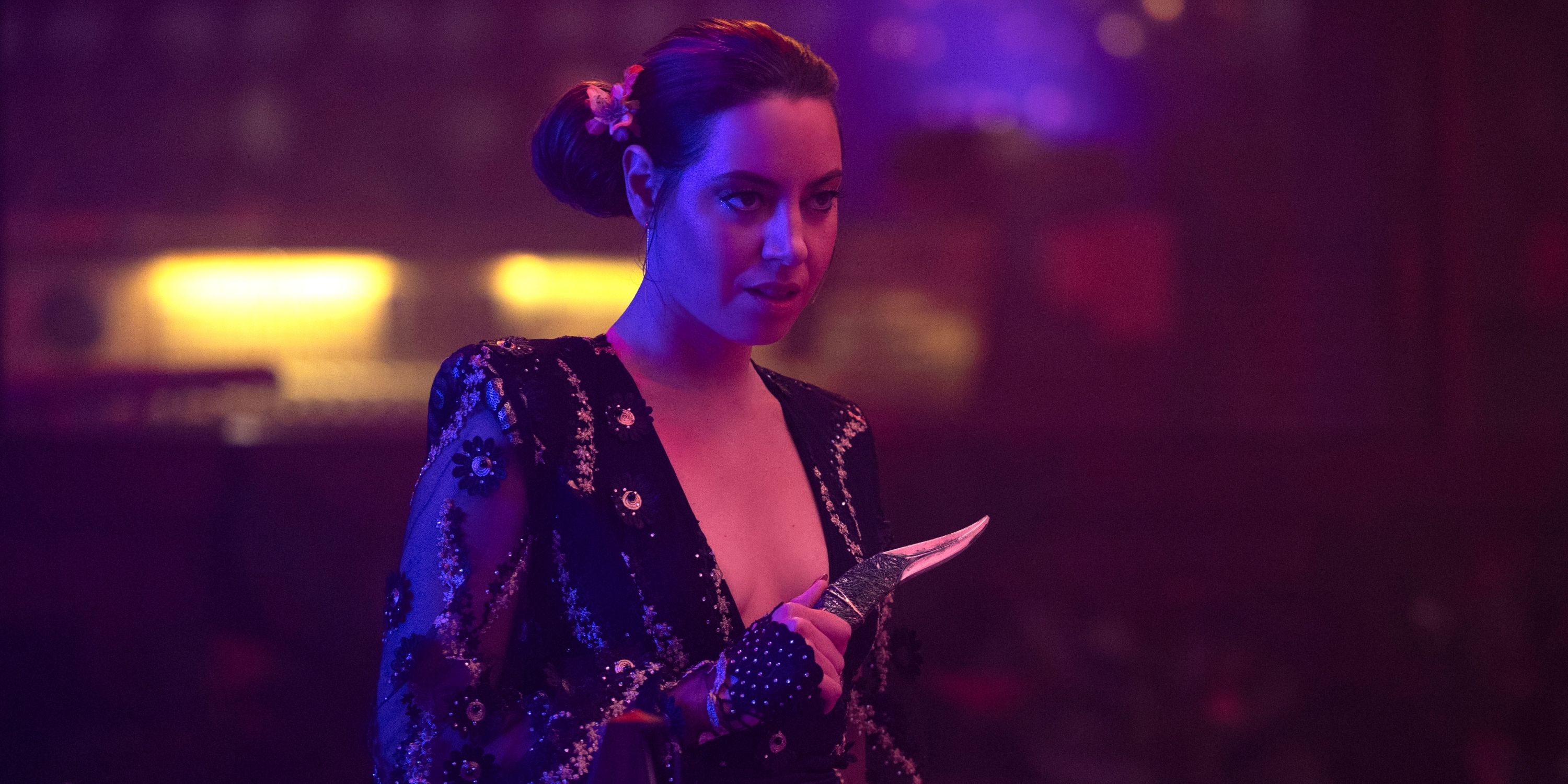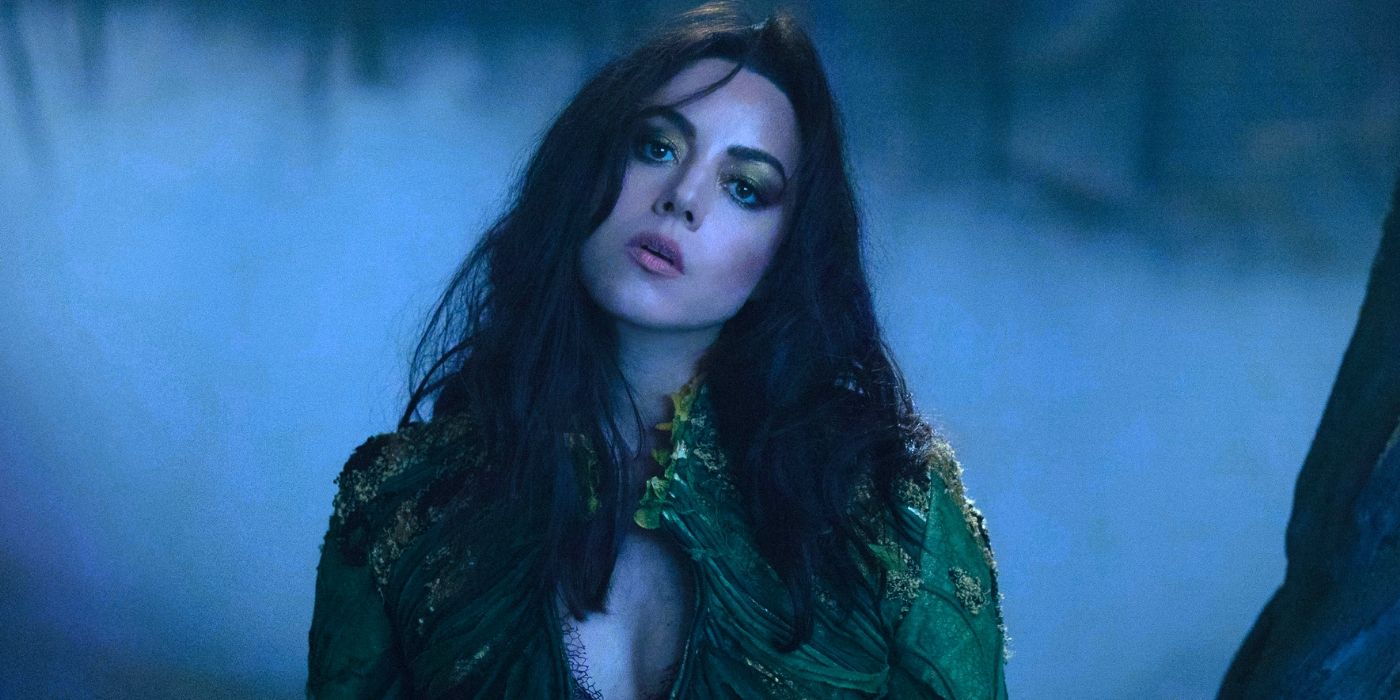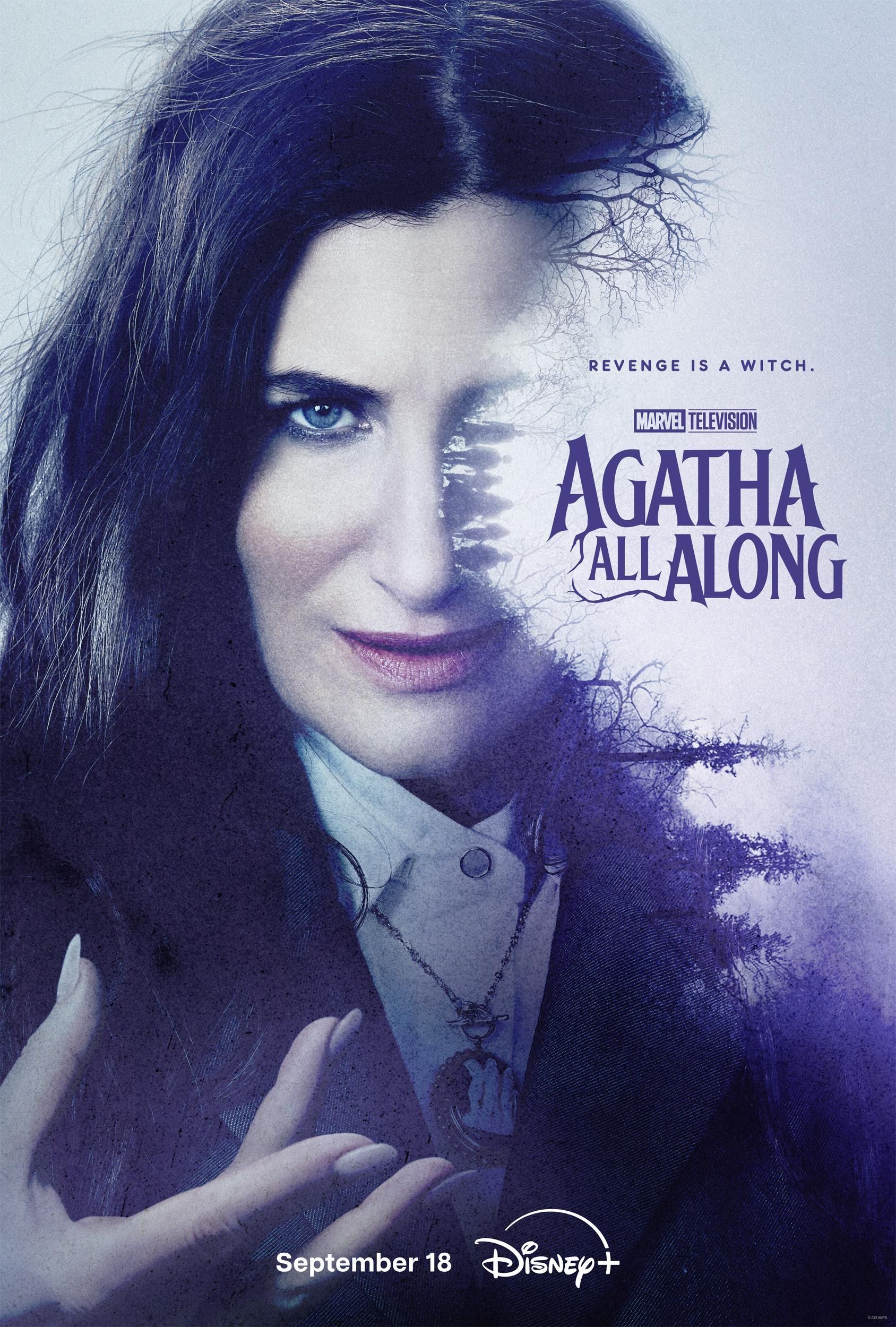Editor’s note: The below contains spoilers for all episodes of Agatha All Along.
Before Agatha All Along premiered on Disney+, speculation swirled about which character might pose the biggest threat to Agatha Harkness (Kathryn Hahn). The delightfully unrepentant villain needed an oppositional force dynamic enough to, in social media terms, match her freak. The answer proved deliciously complicated: nothing less than the embodiment of Death herself (Aubrey Plaza), who also happened to be Agatha’s old flame. During the Marvel Studios’ Assembled: The Making of Agatha All Along special, creator and showrunner Jac Schaeffer discussed the team’s decision to incorporate Lady Death — a longstanding figure from Marvel Comics with romantic ties to both Deadpool (Ryan Reynolds) and Thanos (Josh Brolin) — into Agatha’s history. “In any MCU property, you have to have a villain, or some kind of counterpoint, and so we talked at length about who would be a foe for Agatha,” Schaeffer explained. “So this notion of Death herself being the adversary for Agatha felt so right.”
Although Death functions as a dramatically necessary and thematically relevant antagonist to Agatha’s protagonist, “adversary” doesn’t always equal “villain.” Raising concern over a word choice might seem like quibbling over semantics — but if future Marvel projects choose to capitalize upon the potential Plaza’s performance wrought and bring Death into the fold as a recurring character, then following Agatha All Along‘s introspective and ambiguous lead is the only way forward. Positioning Death as an archetypical MCU villain would be reductive.
Death Is an Inevitable Part of Life in ‘Agatha All Along’
In both the real and fictional worlds, death often feels evil, cruel, and personally vindictive. Far too often, it doesn’t operate according to our notions of justice or fairness. But as Lilia Calderu’s (Patti LuPone) Maestra (Laura Boccaletti) wisely points out in Agatha All Along‘s seventh episode, facing death is the one thing all living beings share. No matter how or when it claims us, it’s an inevitable experience no one can cheat — not even witches.
Even though the Death we get to know in Agatha All Along relishes situational chaos and makes no bones about her sadistic streak, she doesn’t seek out victims. Nor does she kill them herself; that’s against the rules. She’s a neutral force escorting those who have already passed, a subservient figure bound by the rules of the “sacred balance.” As the original Green Witch, she oversees the cycle of life and helps maintain a semblance of order over a universe that flies off the handle every other week. Death’s existence and function fundamentally differ from the rest of the MCU’s rogues’ gallery to the point that the “villain” classification doesn’t apply.
Falling in Love Challenges Death’s Ability To Serve the Natural Order
Things grow a little more complicated where Agatha Harkness, both a mass murderer and a survival expert, is concerned. Even though Death gave Agatha six extra years with her son Nicky (Abel Lysenko), from Agatha’s perspective, it’s understandable why she can’t forgive her lover for taking her son away. Nicky’s loss remains an irrevocably unhealed wound — not merely the ultimate betrayal, but a violation inflicted upon Agatha by the only other person with whom she shares reciprocal affection. For Death, it’s an unavoidable duty she didn’t want to perform. Both times she arrives for Nicky, she shows mercy: first, by quietly approaching Agatha with a melancholic, subdued expression quite unlike the personality we’ve grown accustomed to during the series’ modern timeline. Later, when Death definitively escorts Nicky away, she makes the process as comfortable as such an agony can be for both parties. Agatha sleeps through his passing, sparing her the sight of watching her son slip away, while Nicky walks hand-in-hand into the dark with a gentle figure instead of feeling fear.

Related
Before ‘Agatha All Along,’ Aubrey Plaza Terrified in This FX Marvel Series
This is what a truly scary Marvel adaptation looks like.
Because Death loves Agatha, she makes an exception exclusive to no one else in existence. That gesture, combined with Death showing enough emotional vulnerability on the Witches’ Road to call Agatha “my scar,” implies the tragically fitting fact that Death has never loved anyone except Agatha Harkness. Presumably, Death maintains that exception for as long as she can fight against the rules to which she’s beholden — and since she shouts “Why don’t you want me?” from Agatha’s rooftop with all the flabbergasted fury of a spurned ex, we can likewise assume that Death can’t fathom why Agatha continues to reject her. Instead of moving on like an unbiased arbiter of life and death should, Death once again breaks the universe’s rules for Agatha Harkness. This time, however, it’s by pursuing her ex with murderous intent and tormenting her like a cat toying with a mouse. Yet when push comes to shove, she sheds tears over Agatha’s body and turns her grave into a flower-covered memorial. Their toxic love-hate conflict stems from centuries’ worth of raw pain.
Aubrey Plaza’s Death Is Complex in ‘Agatha All Along,’ but Not Evil
When it comes to people who aren’t Agatha or Nicky, Death’s behavior seems to adapt to the person at hand. For Lilia, she emerges from the shadows like a menacing omen, but Lilia has lived with the loss of her coven for over 400 years. Death’s threatening skull-face and raised blade reflect the guilt-ridden trauma Lilia must overcome during her final moments. On the other hand, Alice Wu-Gulliver (Ali Ahn) mourns the fact that her freedom and future are unceremoniously cut short. Although Death is tired of hearing another person’s variation of the same old “I want more time” tune, she mixes wry callousness with a matter-of-fact neutrality that borders on comforting: she reminds Alice, a protection witch, that “you died protecting someone.” Alice’s fate might be a bitter pill to swallow, but defending Agatha’s life wasn’t in vain.
Because of Death’s universal role, it’s questionable to even call her morally gray. Any moral ambiguity comes not from her job but her surprisingly human heartbreak — a collection of traits extending her complexity into a realm beyond the good versus evil binary. The embodiment of Death is capable of abiding love, tenderness, and selflessness. Feeling such emotions doesn’t preclude characters from being villainous, but by no means is Death heartless, evil, or someone who should become Marvel’s next Big Bad. She’s just inevitable.
Agatha All Along is available to stream on Disney+ in the U.S.
Watch on Disney+



